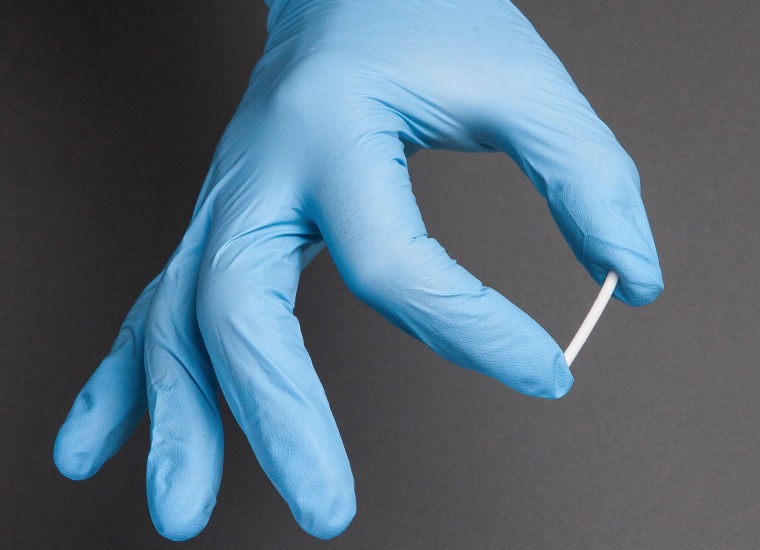A new medication, the first of its kind, has just been approved by the Food and Drug Administration for people addicted to heroin and prescription painkillers.
As an implantable version of a drug designed to ease withdrawal symptoms, the FDA-approved Probuphine is a new hope for those caught in the fight of their lives in the epidemic that is sweeping America.
Today, it's hard to believe that Sarah Wilson, a 40-year-old mother of four from Jacksonville, Florida, was addicted to opioid painkillers for almost five years. But in 2008, Wilson suffered serious spinal injuries after her car was hit by a drunk driver. The accident left her with chronic back pain.
"There were days I couldn't walk," said Wilson. "When it's bad, it's like a knife slicing down my arms and legs; it's a radiating pain and some days I can't even feel my hands and feet."

Sarah Wilson's addiction began slowly, with injections for chronic pain prescribed by her doctor. When the treatments got too expensive, she switched to hydrocodone, a popular painkiller. Before long, Wilson was dependent on the drug and increasing her doses.
Related: Obama Pushes For More Treatment for Opioid Addiction
"I was taking pills to get out of bed in the morning and as it [dosage] increased my body became dependent on it," said Wilson. "If I didn't have them I would have chills, I would get nauseous; I needed those pills. There was no other option."
Wilson told NBC News that toward the end, she was using up to 30 pills a day. Then with her family and her health at the brink, Wilson took the most important step of her life — she sought recovery.
Wilson first enrolled in a clinical trial for buprenorphine, the oral version of the drug, and it worked to curb her opioid dependency and ease her back pain. When offered the chance to try the innovative implant version, Probuphine, she didn't hesitate.
How it works: four match-stick size rods are implanted under the upper arm and designed to release a steady state of buprenorphine over a period of six months. Along with the freedom from having to worry about getting medicine every day, it offered Sarah peace of mind that her children could not get their hands on her medication.
Related: 9-Year-Old Trained to Use Heroin Overdose Antidote
"All of the evidence shows and strongly suggests that medical treatment makes a difference," said Dr. Richard Rosenthal, investigator of the implant's clinical trial and professor of psychiatry at the Icahn School of Medicine at Mount Sinai. "You're not giving another medication for the addiction, you're giving the medication to stabilize the person so they can work their recovery."
The implant is the latest weapon in the war against the drug overdose epidemic in the United States. The FDA approved the implant for patients who are already stable on low-to-moderate doses of other forms of buprenorphine, as part of a complete treatment program.
Wilson is proud to have not relapsed since she started treatment. She says with the implant she doesn't have to think about or be concerned with missing pills or not having her medication. Her hope is that by speaking out she can help reduce the stigma attached with addiction.
"I wouldn't be here, this medication saved my life, and I don't believe I would have survived," said Wilson. "This implant is another option and for some people it may be the only option, it may be the only thing that works."

